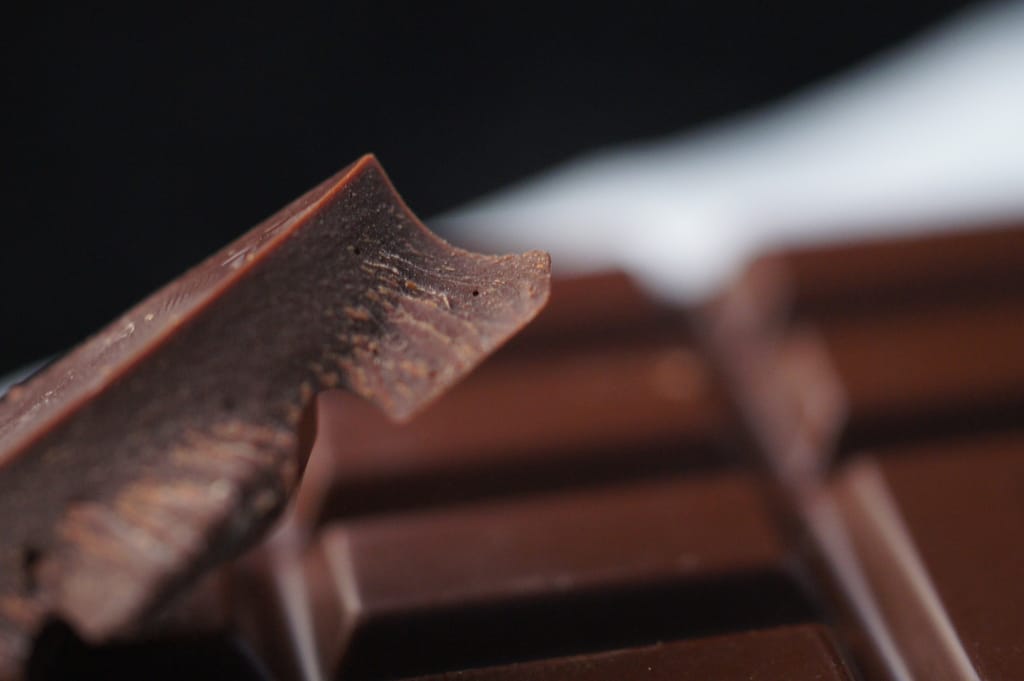Everyone knows that dark chocolate is an absolute no-no for dogs, but most people assume that other ‘people food’ is okay to give them. Not so. In fact, there’s a bevy of treats that can make your beloved pet extremely sick. Take a look at some of the products your dog should omit by all means. Staying educated is a must to keep your doggo’s healthy and happy.
Avocado

Avocado, being a trendy food you can often see on fancy bruschettas, is not that healthy for your dog. Because persin, a fungicidal toxin, causes health problems in animals, you should avoid giving it. Avocados can cause vomiting, breathing difficulties, or even heart congestion. As specified by veterinarians competent in toxicology, dogs seem to be more resistant to persin than other animals. Yet, it doesn’t mean that giving your dog an avocado is wholly safe and sound.
Caffeine

Pets are more sensitive to caffeine than humans. It is also a trickier substance than humans usually think of. While caffeine is an excellent stimulant for humans with little side-effects if consumed adequately. With dogs, the situation is drastically different.
Caffeine can now be found in dozens of manufactured foods, ranging from sodas to electrolyte water. Avoid giving your dog even a single lap of coffee whatsoever. Caffeine considerably increases heart rate, causing hyperactivity and blood pressure. Should we mention that these caffeine effects might also cause vomiting and tremors?
Chocolate

Another substance dogs are more sensitive to than humans is theobromine, which you can find in a chocolate or candy bar. Humans break down theobromine much easier than pups, so you should remember that chocolate is a big no-no for your doggo.
Chocolate can cause vomiting, diarrhea, rapid breathing, low blood pressure, or even seizures. For more information on chocolate intake, be sure to use PetMD’s Cholocate Toxicity Meter dog if your dog accidentally got to chocolate. Be aware!
Corn on the Cob

Alright, who hasn’t ever been tempted to treat your dog with some corn on the cob? Pups usually beg for it, and you might give it without a second thought. But it’s a huge mistake since corn on the cob is indigestible. They can also cause choking hazards, but the risk of gastrointestinal injury is too high if your dog swallows a cob. If you suspect your dog ate a cob, immediately contact your Vet to avoid substantial health issues.
Address your concerns with a veterinarian with an Online Vet by Petcube — a qualified vet help available 24/7 via an online chat.
Alcohol

Can dogs get drunk? They can, but they absolutely mustn’t do that! Just like with chocolate or corn on the cob, alcohol is toxic for dogs. Oh yeah, for humans too. Ethanol, a part of any beverage or liquor, is extremely poisonous for pets.
Look, it’s never OK to let your dog sip beer or so. Alcohol consumption in pets leads to intoxication, vomiting, disorientation, and muscle tremors. Under no circumstances should you leave any beverages unattended.
Onion and Garlic
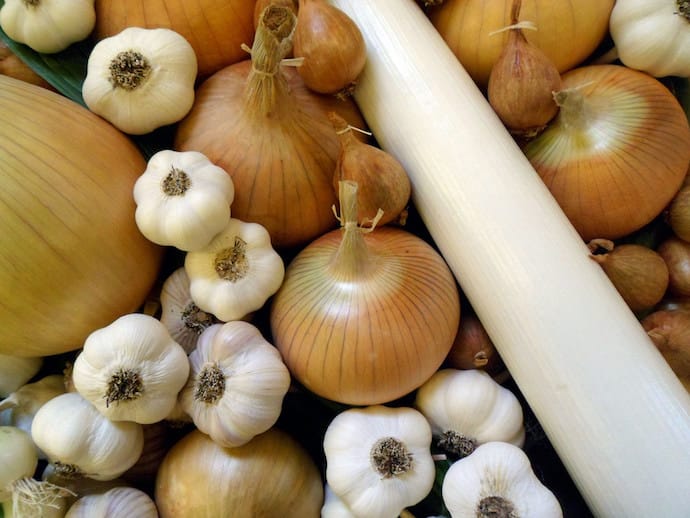
Can dogs eat onions? Absolutely not! They contain N-propyl disulfide, a compound capable of breaking red blood cells. These processes lead to anemia, making onion exceptionally poisonous for dogs. Possible symptoms include lethargy, weakness, fainting, and decreased appetite.
What about garlic? Well, it’s even stronger than onion in breaking blood cells. Even your dog accidentally bit a bit of garlic, nothing exceptionally terrible would happen. But don’t intentionally feed your four-legged friend garlic or onion. But what, can dogs eat garlic bread? Even though you could give your dog a bite, but herbs, oil, garlic, and bread might irritate your doggo’s stomach.
Grapes and Raisins

Can dogs eat grapes? Or maybe dried ones, which are called raisins? The answer is obvious: No! They are proven to be highly toxic to dogs, possibly being harmful and even leading to kidney failure. What to do if your dog ate grapes? Contact your Vet and arrange an immediate appointment. A fast reaction is a must since grapes digest quickly, so a quick response is necessary.
Macadamia Nut

Another alerting food you should avoid is a macadamia nut. These nuts are toxic to dogs, so eating even the smallest amount is a warning sign for any pet-owner. Because of the high-fat amount, macadamia nuts can cause panting, tremors, and swollen limbs. Troubled walking is yet another sign you should consider. Be conscious of nuts since macadamia ones indeed cause more harm than good.
Dairy Products

Can dogs eat cream cheese or drink milk? Dairy products are tricky foods for canines since their consumption is highly contextual. Much like humans, some dogs can have lactose intolerance. Should we say that dogs with it must abstain from dairy products? Even if your pup doesn’t have lactose intolerance, dairy products are generally high in fat and sugars. That’s why omitting dairy products is usually wise for any pet-owner.
Xylitol
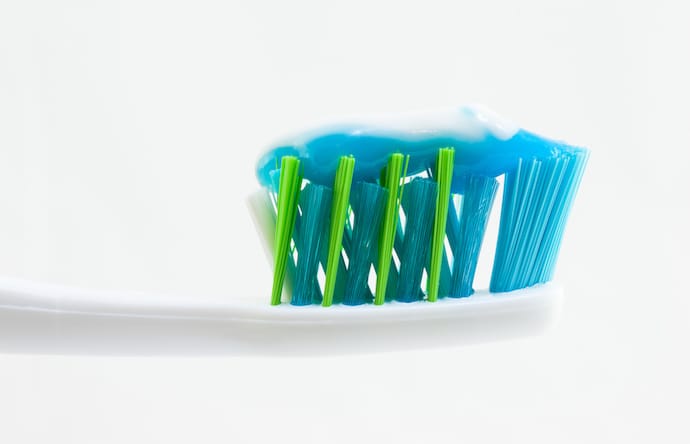
Dogs are fond of your fresh breath after teeth cleaning. But listen, giving your dog gum or toothpaste is the worst possible idea. The problem’s that xylitol, a synthetic sweetener, is capable of causing liver failure. Keep candy, gum, and toothpaste out of your dog’s reach for the greater good.
Yeast Dough
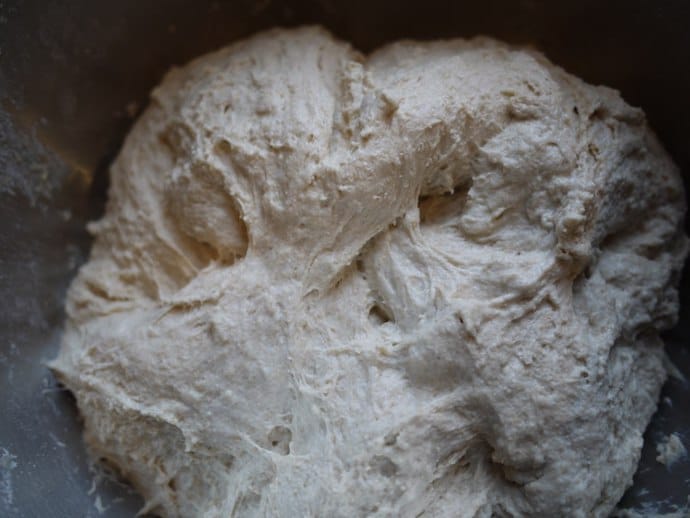
The problem with yeast dough is relatively straightforward. When the dog eats bread dough, the yeast naturally continues to rise, causing stomach distention. Not only can it cause stomach pain, but it also releases toxic levels of ethanol. Remember about its toxicity for dogs? Now you know that yeast dough is a big no-no for your doggo.
Afterword
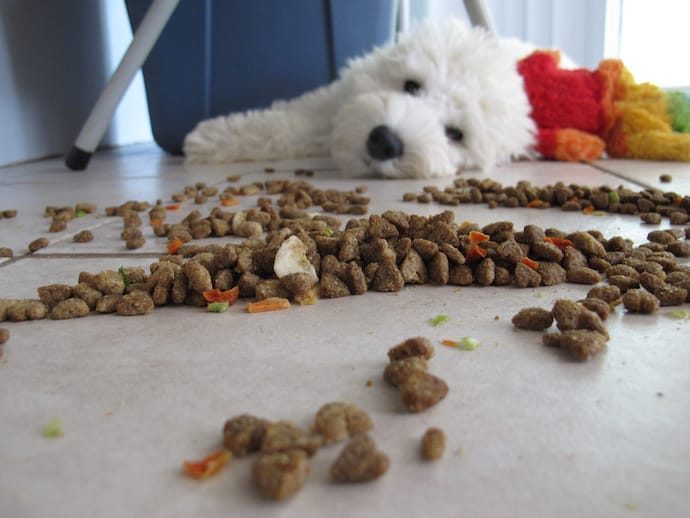
Having a dog is a huge responsibility. Keeping your dog happy and healthy is an even bigger one. So if you keep food out (or have a curious dog with countertop skills), be sure to read the labels for all these products.
Keep healthy eating habits at home, and be sure that their diet is healthy and balanced. And don’t forget about regular veterinarian visits, too!
Read more posts about food
Was this article helpful?
Help us make our articles even better

